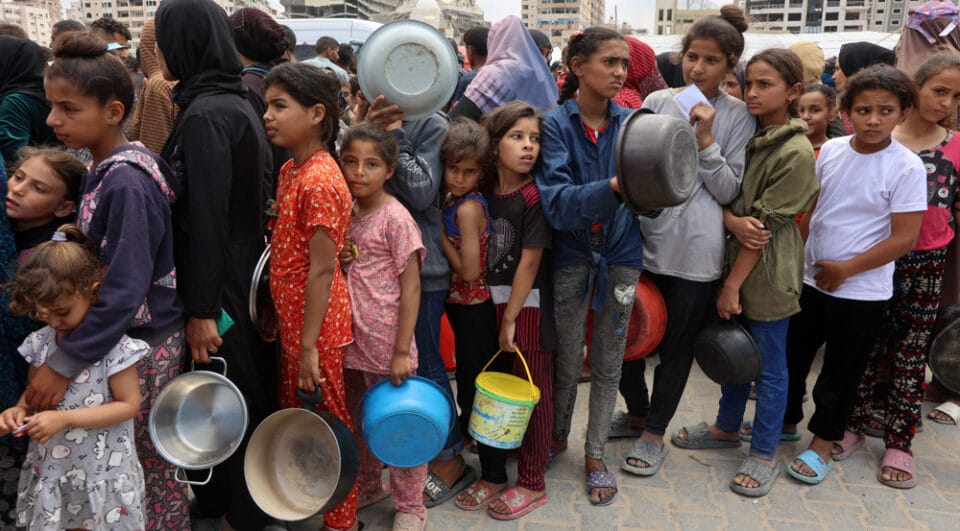Commissioner-General of the UN agency for Palestinian refugees (UNRWA) Philippe Lazzarini has warned that the current aid flow into Gaza is “a mockery to the mass tragedy” unfolding under international observation.
Lazzarini said that rather than finding urgent solutions, the international community has fallen back into a “blaming game” as Palestinians in Gaza face starvation and struggle for survival.
While Israel claims approximately 900 aid trucks have entered Gaza over the past two weeks, the UN notes this meets barely 10% of the enclave’s daily humanitarian requirements.
Local sources added that many of these trucks have reportedly been looted by gangs backed by Israeli forces.
“This is not enough,” Lazzarini said. “We are watching mass starvation unfold. It can be stopped. It only takes political will.”
During the temporary ceasefire earlier this year, the UN and UNRWA brought in 600 to 800 trucks a day.
“No aid was diverted,” Lazzarini noted. “That’s how we turned the tide and prevented a man-made famine.”
UN says conditions in Gaza worst since war began
UN spokesperson Stéphane Dujarric addressed reporters in New York, saying, ”Any aid that gets into the hands of people who need it is good.” However, he underscored that “the aid deliveries so far overall have had very, very little impact.”
“The catastrophic situation in Gaza is the worst since the war began,” he warned.
The US-backed aid plan has been widely criticized for its unfair and inadequate distribution system.
Analysts, activists, and aid agencies have described the US-Israeli plan for aid relief in Gaza as a “mockery” of humanitarian law.
International aid agencies have already warned that Israeli plans to control aid distribution in Gaza, including the US-backed proposal, will only add to the suffering in the devastated Palestinian territory.
Israel launched a campaign of genocide in Gaza on October 7, 2023, killing at least 54,321 Palestinians, mostly women and children, and injuring 123,770 others.
In January, the Israeli regime was forced to agree to a ceasefire deal with Hamas, given the regime’s failure to achieve any of its objectives, including the “elimination” of the Palestinian resistance movement or the release of captives.
On March 18, the regime resumed the strikes on Gaza, breaking the nearly two-month-long ceasefire.
Israel had enforced a total blockade on Gaza before resuming the offensive, preventing any food, medical supplies, or goods from entering the besieged territory.
The Gaza Government Media Office reports that since then, starvation and medical shortages have claimed at least 300 lives, including 58 from acute malnutrition and 242 from lack of food and medicine.
Israel has been condemned for using starvation as a weapon of war against Palestinians.
